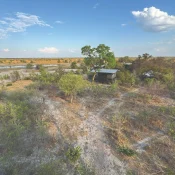
Travel with peace of mind, get insured
Travel insurance is cover intended to protect against risks and financial losses that may occur while travelling. The risks may be minor inconveniences such as missed airline connections and lost or delayed luggage. More serious issues may be injuries or illness.
Various insurance companies offer this facility and they charge specific premiums for this cover. For instance, Old Mutual offers various packages for leisure and business related trips.
What does travel insurance offer?
- Cover for unforeseen trip cancellation, loss, theft and damage to luggage
- International medical and hospitalisation fees and medical evacuation
- Repatriation expenses and compensation for luggage incidents
- Personal assistance services, personal accident (death or injury) and personal liability
For the business traveller the package covers:
- Theft or damage to equipment such as cameras or laptops
- Cancellation and curtailment as well as reimbursements for additional expenses incurred
- Lost luggage
- Medical expenses and arrangements for medical repatriation
Insurers charge different premiums depending on the age of the traveller and the travel plan. It is best to purchase travel insurance as soon as you have paid for your trip. That way, you get cover from the earliest moment in case your trip is curtailed.
Cover for trip cancellation and delays commences right away and ends once you have gone through passport control at the start of the journey. The cover for the rest of the benefit starts when you go through passport control at the beginning of your trip and ends when you return to your country of origin.
It is important to note that travel insurance does not cover pre-existing medical conditions. As well, note that generally the ages that can be covered are from infants up to those aged 80 years old.
When you incur a loss, it must be reported to the insurance company. You may be required to report the loss to the Police and obtain a report that will be attached to the claim form.
Information required when making a claim
- Policy number
- Contact information of the insured
- Date of the loss
- A description of events surrounding the loss
- Information on where the loss occurred

When travelling by road in the Southern African region, road users are encouraged to get cover by acquiring a ‘Yellow Card’.
Background
The Member States of the Common Market for Eastern and Southern Africa (COMESA) previously known as the Preferential Trade Area for Eastern and Southern African (PTA) noted that there were problems in inter-state traffic regarding motor vehicle liability insurance. The member states agreed to adopt minimum requirements for the insurance of goods and vehicles.
The Council of Ministers within the organisation in 1985 decided that a compulsory Third Party Motor Vehicle Insurance Scheme be established and the Protocol on the Establishment of the Third Party Motor Vehicle Insurance Scheme was signed on December 4, 1986 in Addis Ababa, Ethiopia by 14 countries.
The Scheme
The Yellow Card is essentially a regional third party motor vehicle insurance scheme that provides third party legal liability cover and compensation for medical expenses resulting from road traffic accidents caused by visiting motorists. The COMESA Yellow Card Scheme also offers emergency medical cover to the driver and passengers of the foreign motor vehicle involved in the traffic accident. The third party liability cover offered is limited to the statute provisions on road traffic third party liability award limits of that country being visited and in which the incident has happened.
The COMESA Yellow Card Scheme is currently operational in 12 member countries and one non-member state. The Yellow Card is recognised as a valid insurance cover in Burundi, Democratic Republic of Congo, Djibouti, Eritrea, Ethiopia, Kenya, Malawi, Rwanda, Sudan, Tanzania, Uganda, Zambia and Zimbabwe. It is also widely used by non–COMESA motorists predominantly from Southern African Development Community (SADC) nations visiting or transiting through the COMESA member countries. Over 180 insurance companies in the COMESA region are involved in the issuance of Yellow Cards and operations of the scheme.

Several companies in the insurance sector offer travel insurance and the Yellow Card scheme. A list of insurance brokers can be found on the website of the Insurance and Pensions Commission (IPEC) website, www.ipec.co.zw/insurance/view-entities.
Text by Perry Kaande
Photos by Fotohaus
All Categories
Recent Posts
Kazuma Safari Camp –
Kariba’s Kumabirira Lodge Is The Perfect Hideaway
Contact Us
+263 789 532 918




